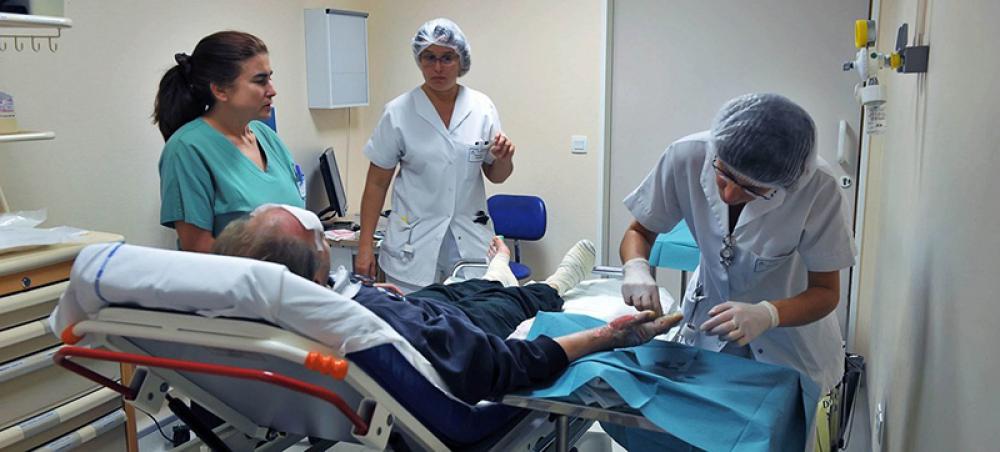Just Earth News | @justearthnews | 23 Sep 2022

Image: ILO Photo/Marcel Crozet
New York: From heart disease to cancer and diabetes, noncommunicable diseases (NCDs) now outnumber infectious diseases as the “top killers globally,” the UN health agency said in a new report, released on Wednesday, with one person under 70 dying every two seconds from an NCD.
The report and new data portal, was launched on the sidelines of the 77th session of the General Assembly, at an event co-organized by the World Health Organization (WHO) together with Bloomberg Philanthropies.
Report assets
NCDs constitute one of the greatest health and development challenges of this century, according to WHO.
Chief among them are cardiovascular diseases, such as heart disease and stroke; cancer; and diabetes and chronic respiratory diseases – as well as mental health illnesses.
Together they account for nearly three-quarters of deaths in the world, taking 41 million lives every year.
The report, Invisible numbers: The true extent of noncommunicable diseases and what to do about them, highlights NCDs statistics to illustrate the true scale of the threats and risk factors they pose.
It also shows cost-effective and globally applicable interventions that can lower those numbers and save lives and money.
“This report is a reminder of the true scale of the threat posed by NCDs and their risk factors,” said WHO chief Tedros Adhanom Ghebreyesus.
Country-specific portal
Sharing the latest country-specific data, risk factors and policy implementation for 194 countries, the NCD data portal brings the numbers in the report to life.
Moreover, it allows data exploration on cardiovascular diseases, cancer, diabetes and chronic respiratory diseases along with their main drivers and risk factors, which include tobacco, unhealthy diet, harmful use of alcohol and lack of physical activity.
The portal spotlights patterns and trends throughout countries and allows comparison across nations and/or within geographical regions.
“There are cost-effective and globally applicable NCD interventions that every country, no matter its income level, can and should be using and benefitting from – saving lives and saving money," said Tedros.
Important timing
To date, only a handful of countries are on track to meet the 2030 Sustainable Development Goal (SDG) target of reducing early deaths from NCDs by a third.
And yet, NCDs are at the heart of sustainable development and their prevention and treatment is a prime opportunity for investment that would have myriad impacts on economic growth, far outweighing the money spent.
“It is a misconception” that they are “diseases of high-income countries”, said Bente Mikkelsen, WHO’s Director of Noncommunicable Diseased, adding that a full 85 per cent of all premature deaths happen in low and middle-income countries.
At a critical juncture for public health, WHO said that the new information offers a chance to address the issue and recommends spending more on prevention.
Investing $18 billion a year across all low and middle-income countries could generate net economic benefits of $2.7 trillion by 2030.
At the event in New York, the WHO chief called on global leaders to take urgent action on NCDs and renewed the two-year appointment of Michael Bloomberg as WHO Global Ambassador for Noncommunicable Diseases and Injuries – his third reappointment since 2016.
“As we continue to respond to this pandemic and prepare for the next, we have seen the critical importance of addressing a major risk factor in COVID-19 hospitalizations and deaths – noncommunicable diseases,” said Mr. Bloomberg.
He maintained that they can often be prevented with investment in "proven, cost-effective interventions" and looked forward to continuing to make "life-saving investments in NCD and injury prevention" alongside WHO.